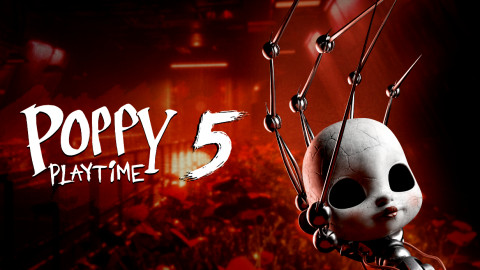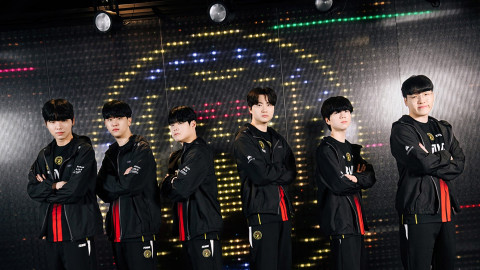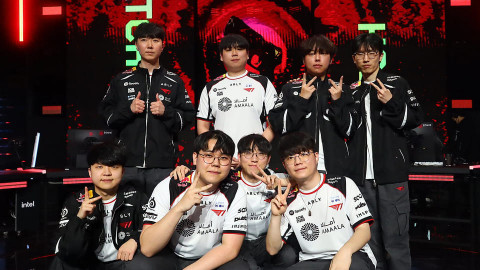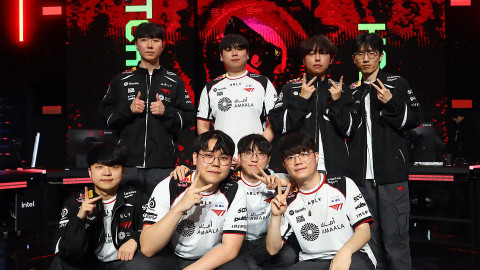When I occasionally attend game shows like E3 or Gamescom, I get to play game demonstrations along with reporters from other countries. Naturally, most games at game shows have yet to be published, so everybody is excited to step into the booth. While waiting for the showcase, gamers stand about and chat. During this chit-chat, my nationality usually comes up; when I say that I’m from South Korea, the people I’m talking to are usually surprised and ask me to go easy on them.
To be honest, my gaming ability is about average. When I was in my late teens and early twenties, I had quick reflexes, so I did often hear that I was good, but as I am now in my thirties, games are just a hobby and part of work. I’m now just a normal average gamer. Even so, the moment I step into a booth, gamers from other countries treat me as if I’m some kind of neoanthropinae. The only real difference between us is that we come from different places. Sometimes, this type of attention is surprising or a burden, but I usually enjoy the publicity.
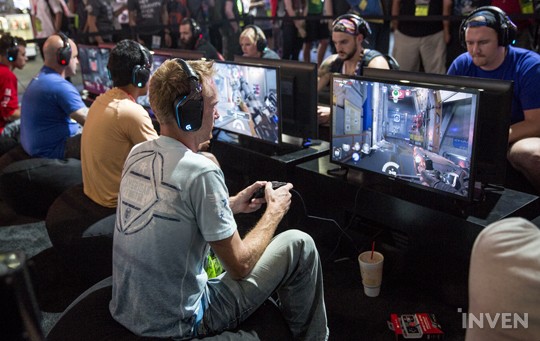
My perspective may just be an outlier though, because Koreans are actually very good at games. Being in the esports scene, I often have access to many international competitions and see many Koreans in the scene, and more often than not, those Koreans are favored by fans even if that person isn’t famous. I’ve even seen people predicting winners by counting which team has more Koreans. The interesting thing about this was that the people who said such things were not just biased towards Korea or were a group whose favorite team suffered severe losses to Korean gamers. Rather, most of the people who work in the scene seem to share this opinion.
The reason that Koreans are good at games isn’t because Koreans are genetically adept at games. Biologically, there should be nothing that makes Koreans better than gamers of other countries. However, there is still a clear reason. I’ve lived in Korea for 30 years and experienced the cultural and historical changes through the years. Through that experience, I know the persona of Koreans that people from other countries don’t know that well. The topic I want to cover here is “Why are Koreans good at games?”. A simple warning beforehand, this isn’t the most beautiful of stories; it’s a story about Koreans that I plan to tell without prejudice.
■ Why do Koreans play games ‘a lot’?
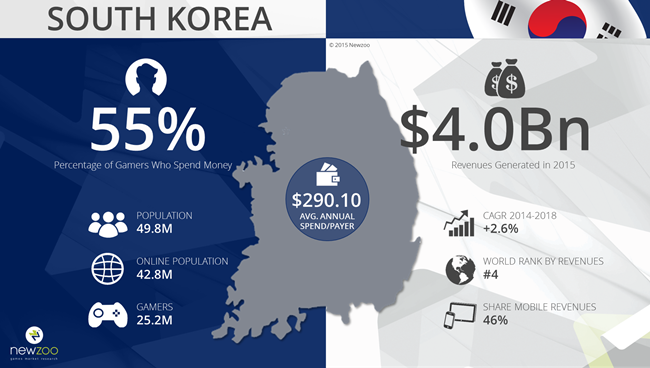
- The Country that has the best environment for gaming
Before getting into anything, there’s a need to explain the past 20 years of South Korea. When I was very young, around the early 1990s, there was nearly zero awareness surrounding ‘computer games’. Playtime for children of that time was chasing dragonflies, collecting bb-guns, or playing simple active games in the neighborhood.
At that time, PCs were extremely expensive. Based on my memory and information I found of that time, a PC cost nearly $3,000-$4,000. Goods in South Korea were generally cheaper at the time, so that made the computers seem even more expensive; it would have taken an average worker several months of salary to afford one. So there weren’t many that enjoyed gaming on PCs and usually, games were played through early consoles.
However, near the late 90s, many things changed. In 1997, South Korea went through the worst foreign exchange crisis after the Korean war, and most major companies of the nation went bankrupt one after another. Although I was very young at that time, I still remember my mother telling me that we had only 400 won (≒40 cents) left in our bank account; it was that bad. To overcome the crisis, the government invested in the IT industry to create high-value businesses. This made the price of PCs go down drastically and high-speed internet lines were supplied throughout the country.

Nearly at the same time, PC cafes became very popular. Before the crisis, there were less than 10 PC cafes in the country, but after the IT investments, the number of PC cafes grew at an exponential rate. It was a perfect business. As the price of PCs dropped, opening up a PC cafe became a relatively cheap and easy way to start a business. High-speed internet was available throughout the country, and the once rickety wagon of gaming was suddenly pulled forward by steeds named Starcraft and Lineage. In no time at all, the number of PC cafes in the country was too high to count.
An interesting fact is that the comic book cafes, video cafes and video game arcades, which were at the head of Korean culture before PC cafes, closed up one after another.This was how PC cafes were established as a mainstay of Korean pastimes. PC cafes were a booming business and culture-shaping phenomenon. This environment was a fertile soil that would encourage the growth of the many gamers that took root within it.
- Looking back on my childhood, there were only so many fun activities.
For those of you who don’t know much about Korea, it doesn’t have a lot of land relative to its population; whenever Koreans visit the USA for the first time, they almost always fixate on how big it seems to them. With not a whole lot of land but quite a lot of people, the population is densely packed in 20-story apartments, which are spread about the cities like so many stone trees.

This is an important point. Since Korea has to utilize its limited landscape very efficiently, There aren’t very many places for children and students to gather or play. It’s not that Koreans hate outdoor activities; if you look at schools during lunchtime, many kids run out to play football (soccer) or basketball in the schoolyard, often leaving sandstorms in their wake (most Korean schools have dirt schoolyards).
An interesting thing about playing at school is that you’ll usually see more than 100 students playing at the two goalposts; more than 5 balls are kicked from one place to another. Essentially, more than 5 games are played in the same field, at the same time. Some goalies use this time to chat with each other, since there are 5 goalkeepers per goal post. Sometimes, they even block balls from other games. This was what happened while I was in high school, but it hasn’t changed much even after 10 years.
Still, there are around 100 kids tangled up in the small field, and most if not all of the kids think ‘If I have to play like this, I’d rather not play.’ But they can’t just do nothing. Students need something to enjoy and since they’re fed up with the uncomfortable environment, they tend to find things to enjoy more conveniently. Eventually, gaming becomes their final destination.
Compared to how they are in the chaotic schoolyard, the students of Korea in the classrooms are very different. Korean students usually stay a very long time at school. Compared to the schools of other countries that end around 3PM or 5PM, it is a natural thing to stay at school till late at night. There’s evening study (Roughly translated, it’s called Night Liberal Study, which isn’t actually very liberal) that has to be attended and ends far after dinner. In my case, I headed to school around 7AM and after the long school schedule, I headed home around 11PM. There were no classes during the weekend, but the ‘liberal study’ at school was forced. I spent three years like this.

Being at school for such a long time, stress piles up and the desire for some fun grows rapidly. In search of fun, you end up slipping out of school during the night study time with a few friends (who become like soulmates due to how you’re always together) to find something to enjoy. During the search, you quickly determine that most entertainment outside of gaming is either too cumbersome, too expensive, or takes too much time. Games are just so much more accessible. The only thing needed is a computer; the time needed can be controlled, it’s fun even when played alone, and it doesn’t cost much.
So naturally, students started playing games. There are millions of PC cafes out there; sometimes there are three PC cafes in a single building, and there’s no time requirement (meaning that it’s safe to sneak out of school to play). There’s no need to sweat, and the body is at ease. Many major news outlets and programs in Korea have covered gaming, saying that it’s a social issue and that the Korean youths are addicted. However, there are not many ‘healthy’ hobbies that the Korean youth can have. Even with the ‘healthy’ hobbies, they’re hard to pursue because of money or due to the pressure of parents who are constantly telling them to study.
- Become a member of a group or not.
Humans are social creatures, so they tend to form groups. Korean students form groups because they spend so much time together, and that bond is stronger than people assume. In academic high schools (Korean high schools are divided into academic and industrial high schools), students spend nearly 15 hours a day at school. With all the time they spend together, the students are usually closer to their friends than their parents.
It’s a problem when a student fails to get into one of these ‘groups’. There are a few that get excluded from these ‘groups’, and for those few, school life is very difficult. They get left out of activities and when it gets worse, violent situations may occur. This is a serious social problem that is well-known in Korea. The nation may see it as a bad situation, but it’s even worse for the students themselves. They try to go along with the flow because they know that if they aren’t able to fit in with any of these groups, they will have a hard time for quite a few years.

That’s one of the reasons that Koreans are sensitive to trends. When a celebrity appears wearing something on TV, the same clothes get displayed in shops and suddenly everyone is wearing them. Sometimes even restaurants become trendy and everybody goes to the same restaurant. It’s the same with games. As I already mentioned, there aren’t many things to do as a student in Korea. So to become one of the ‘group’, they have to play games, whether they like it or not. To join the conversation more actively and to exert influence on the group, playing games isn’t just a choice, it becomes compulsory.
Because of this, there are many gamers that play only one or two games in Korea. Most gamers that really like games play many different games, but these gamers that play games to be with their friends don’t need to find different games (of course, there are people that become ‘true’ gamers because of their friends). Although some of them play only a few games, they’re still gamers, and in Korea, most males in their teens are ‘gamers’. Korea is known for having the highest number of skilled gamers, but these players come from a very large gamer population.

Given all of this, it’s not too surprising that Korea has many high level gamers. Rather than being a phenomenon, the famous gamers of Korea are a result of this combination of social and economic factors. The culture that grew as a result of the explosion of PC cafes across Korea was and still is the perfect environment to foster PC gamers.
Having a large population of gamers means that the possibility of outstanding gamers appearing is a lot higher. I’ve seen an article before that Brazil is good at football because of course the whole country loves the sport, but that the culture and environment to enjoy football throughout the country is outstanding. There is no gamer gene hidden in the Korean bloodline, there was just a simple combination of coincidences that led to an ideal gaming environment.
■ Why are Koreans ‘good’ at games?
- Competing-obligated society
As I said, the reason students spend so much time at school is because of the competitive atmosphere in Korea’s society. Korea is a country that has a high youth unemployment rate and the standard of ‘work’ is based on high-tech industries rather than primary industries, since there is so little land. Most of these jobs require high academic cliques and parents want their children to have a “successful” life (diverse jobs exist but the parents normally don’t approve) so they push their children to study more and more.
So naturally, students begin to compete amongst themselves. Even high schools are implicitly ranked and students tend to make friends according to their grades. While they chat and laugh in everyday life among themselves, they secretly think of each other as rivals. This manifests not only in studies, which builds up stress, but in playing games too, which is supposed to release stress.
Korean pro gamers’ massive drive to win comes from this. Most Koreans are obligated to compete from a very young age and are used to doing so. They may say ‘does rank matter?’ or ‘as long as you do your best, it’s alright’ but on the inside they remind themselves that ‘nobody remembers the runner-up’. Many grit their teeth and put in an enormous amount of effort if they lose just once, and many pro gamers became professionals through this process.

There’s also an unexpected factor that affects Koreans’ gaming ability.The Korean education system is quite old-fashioned. Knowledge is injected into the students’ minds, all for an exam that is held once a year. In this process, coercive measures may be used and most people think that it’s normal, and during that process, the students get accustomed to concentrating on something without moving for a long time.
Also, since the education standards are quite high in Korea, many students already handle college-level mathematics during high school. Naturally, they become very skilled at calculating, and their mastery of calculating helps them make rational decisions while playing games. For example, when I used to play League, I calculated the enemies’ HP, defense, and my AD quickly to determine when I could kill them. This is something that’s essential for pro gamers, but in Korea, many everyday gamers that enjoy games as a hobby do the same.
- The national traits of Koreans, a qualified pro gamer.
Koreans spend a very long time with similar people during their school years. Notably, high school students have nearly zero free time in their schedule. Since Koreans are still humans, they do have a desire for privacy, but it’s hard to when most daily lives inevitably center around groups; as a result, some scorn having to be in a group for so much of their day.
Korean pro gamers are usually more skilled than the pro gamers of other countries. This is mostly because of the difference in the amount of practice. The professional teams of Korea give less free time than the teams of other countries. Based on what has been said by Korean players who have been on NA or EU teams, this is common across all teams. The difference in free time is mostly filled with practice time for the Korean teams.
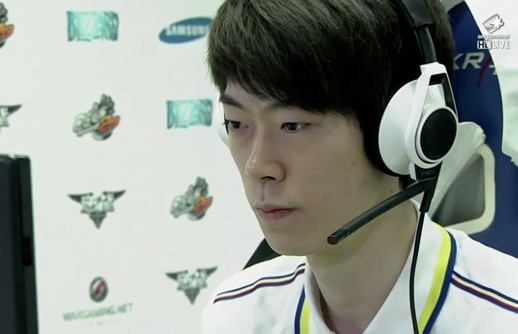
Personally, I thought this was one of the problems of the esports scene in Korea. When I interview players that went abroad to NA, EU, Turkey, or SA, most of them say ‘I like it because there’s more free time’. Of course, it may vary from team to team, but generally, Korean teams have less free time. However, they also say ‘Compared to Korean teams, they have less desire to win. It’s not that they don’t have that combative spirit, but it’s just not clearly shown’.
This is likely a result of the constant competition students experience in Korea. Korean pro gamers have two different kinds of rivalry. One is the rivalry against opponent teams and the other is rivalry against the other players within the team. So essentially, Korean pro gamers have no time to rest, and naturally, there are nearly zero foreign players in the Korean esports scene. Before, there were a few foreign players in certain games, but it’s become very difficult to spot one recently. This is because the disposition is different.
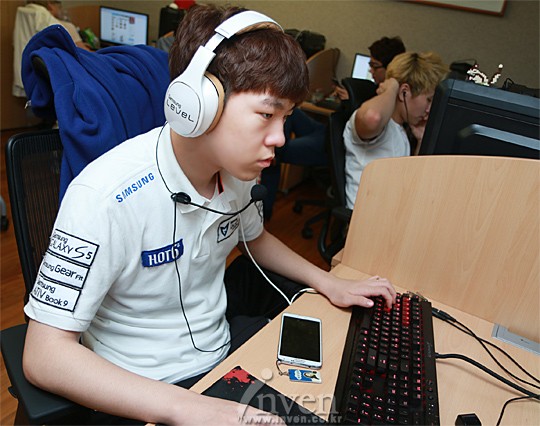
The important thing is NOT that Korean teams are stricter than other countries or that the Koreans have a more combative spirit; the main point is that most Korean players don’t have an aversion to this lifestyle and they think that it’s the inevitable path to becoming a good pro gamer. The treatment and expectations the players experienced in their school life caused the Korean esports scene to develop and have high standards.
- Thinking that becoming a pro gamer is an attainable dream, and society’s discrimination.
I’ll be focusing more on the professional scene from a normal everyday gamer’s view now. Actually, there’s not that big of a difference. The assumption that Koreans are good at games is made by these ‘professional gamers’. As a preface to this topic, I need to explain what Korean society thinks of pro gamers.
It’s the late 2010’s now, and a professional gamer is quite a recognized job in Korea. The power and influence of games as a cultural phenomenon has gotten bigger. Major media and broadcasts have started covering games and many 1st and 2nd generation pro gamers started appearing in several TV shows to change how the general public thought of pro gamers.
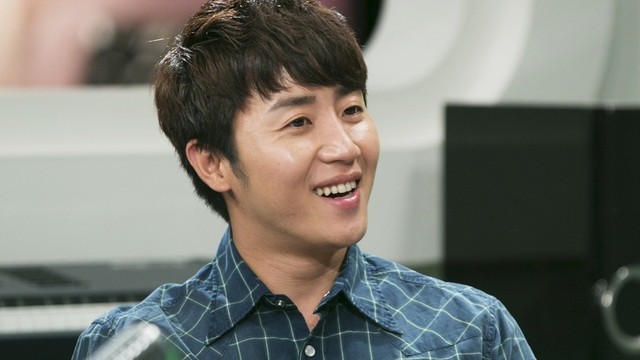
It’s not easy to become a pro gamer. In Korea, there are thousands of people who try to become a pro gamer every year, although most of these people don’t really have the passion; they just want to avoid studying. Anyways, regardless of their intentions, of those thousands, only 1-2% actually becomes professional.
Even if they became pro gamers, they have to fight against the negative criticisms of society and the opposition that their families tend to give. Only a few years ago, many people thought that being a pro gamers was only a little better than being unemployed. Basically, for about 10 years, the job of ‘professional gamer’ had endured discrimination from the Korean society. There was no concept of protecting players’ rights and interests, and not many thought that it was a proper job. The general public thought of pro gamers as kids fooling around, wasting time.
That was why pro gamers had to put in more effort than anybody else. They had to prove that the path they were on was reasonable; they had no time to spare. This desire turned into strong professionalism, and the 1st generation of pro gamers became the managers and coaches that established the esports scene of today. Naturally, their professionalism was passed on to the current pro gamers, so the Korean esports teams were able to maintain that strong desire that started in the early esports scene.
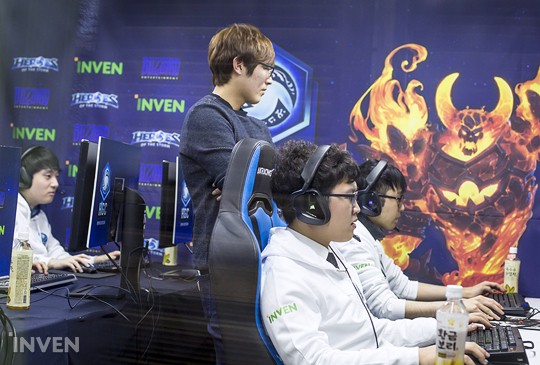
This may seem awkward to people that live in other countries, countries that doesn’t judge people by their jobs, or countries that have more freedom when it comes to choosing what to do with their life. However, Korea is a country that has a high youth unemployment rate, and parents have high expectations for their children and are overly enthusiastic about education. In that situation, many things have to be given up if someone wants to become a professional gamer. That is actually the one piece of advice that professional gamers give most to those who wish to go pro. As someone who works in the esports scene, I have seen many professional gamers that gave up nearly everything. I can’t mention who because of privacy, but there are several pro gamers who have been disowned by their parents or turned their backs on their family to chase their dreams.
With all of this, the Korean esports scene is somewhat contradictory. Despite having the perfect environment to raise gamers, the general perspective on pro gamers was severely cold. The situation is more favorable now, but there’s still a lot of dissonance; many still think that being pro gamer isn’t a proper job, despite national investments being made on esports.
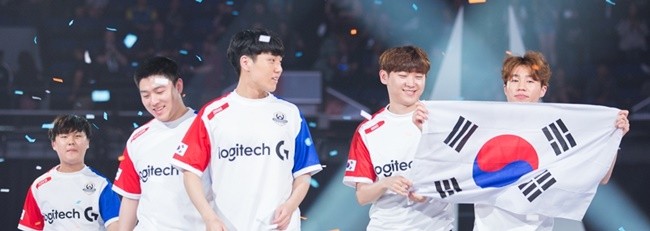
So let’s go back to the start. To concisely explain ‘why Koreans are good at games’, I would say: “It’s the result of insanely competitive people gathering in an environment that encourages them to play games, wherein a fraction of them continue gaming with a passion that can even bring them to turn their backs on their families.” I don’t know exactly how other cultures think of Koreans’ gaming skills since I’ve only been in the Korean esports scene; I’ve only heard partial statements like “Koreans are good at games” or “Koreans play games a lot”.
That’s why I wanted to seriously talk about this topic. Koreans do play games a lot, and they are quite good, but it didn’t come from a system designed to make them like that. It’s the result of a rather paranoid culture and the long rebellion of passionate players against a mostly negative general public. It’s a relief for them that it’s a lot better now since even I, who really enjoy gaming, used to think that the esports scene was dark and distant.
It feels quite peculiar seeing many Korean players playing in foreign teams. Nowadays, the connotation of pro gamers in Korea isn’t much different from other countries. Maybe the ‘good at games’ line would be better off not used, since many Chinese players and western players have the same strong desire and outstanding skills. That’s why I’ve written this now, since this type of article should be written when Korea is good; it wouldn’t be cool to write “The reason Korea used to be good at games”.
Sort by:
Comments :3
-
0
level 1 Oliver_Kavel
This is quite a good Read and highly informational.
-
0

level 1 Kai_Toyata
An amazing article Mr. Jeong and Jang! Thank you very much. This is very well written and has taught me a lot about the Korean lifestyle. -
0

level 1 Xand3r_Pz
Great sociological piece. However, are there structural facts that can contribute to the article? For example, statistics over the number of gaming academies and auxiliary services that Korea supports as opposed to other countries?Just being "competitive" may be the fundamental driver, but surely there is more?Again, good piece.



